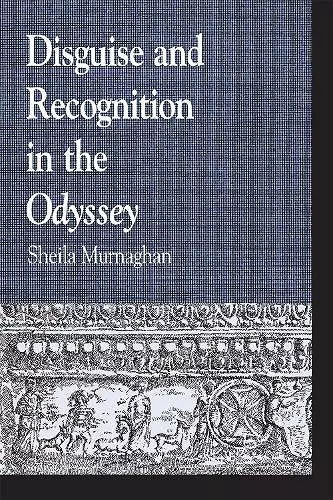Disguise and Recognition in the Odyssey
Format:Hardback
Publisher:Lexington Books
Published:24th Jun '11
Currently unavailable, and unfortunately no date known when it will be back

Disguise and Recognition in the Odyssey reveals the significance of the Odyssey's plot, in particular the many scenes of recognition that make up the hero's homecoming and dramatize the cardinal values of Homeric society, an aristocratic culture organized around recognition in the broader senses of honor, privilege, status, and fame. Odysseus' identity is seen to be rooted in his family relations, geographical origins, control of property, participation in the social institutions of hospitality and marriage, past actions, and ongoing reputation. At the same time, Odysseus' dependence on the acknowledgement of others ensures attention to multiple viewpoints, which makes the Odyssey more than a simple celebration of one man's preeminence and accounts in part for the poem's vigorous afterlife. The theme of disguise, which relies on plausible lies, highlights the nature of belief and the power of falsehood and creates the mixture of realism and fantasy that gives the Odyssey its distinctive texture. The book contains a pioneering analysis of the role of Penelope and the questions of female agency and human limitation raised by the critical debate about when exactly she recognizes that Odysseus has come home.
All those who treasure Homer's great poem, from Classical scholars to the general reader, have reason to rejoice at the reappearance of this landmark study. Part of a rich flowering of scholarship on the Odyssey over the past thirty years, Murnaghan's book focuses on the riddles of identity that lie at the heart of the poem and take us to its central ideas about the human condition. The author's analysis of the relationship between form and meaning in the Odyssey is one of the most important contributions to Homeric scholarship in the past half-century. -- Thomas Van Nortwick, Oberlin College
Disguise and Recognition is a feminist classic as well as a superbly nuanced work of literary criticism. It broke entirely new ground within Classics and Feminist Studies by furnishing an answer to the conundrum of Penelope in the Odyssey, more than her husband’s equal and yet tolerating a position subservient to him without complaint. Murnaghan’s argument that Penelope is construed as a heroic type who achieves her goals by cunning intelligence, only to be knocked down as such by an ideological imperative inimical to male-female equality, has become the standard interpretation. No modern literary classicist can afford not to read this book. -- Edith Hall, Royal Holloway University of London
ISBN: 9780739129531
Dimensions: 240mm x 165mm x 18mm
Weight: 408g
150 pages
Second Edition